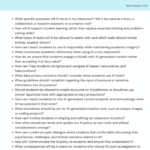Uttarakhand hosted the AI Impact Summit 2025, setting the stage for the India–AI Summit 2026, addressing the future of AI in various sectors.
Dehradun, India — The AI Impact Summit 2025, held in Dehradun, Uttarakhand, on October 18, 2025, marked a significant event in the growing landscape of artificial intelligence in India. Industry leaders, policymakers, and educators convened to discuss the future of AI technology and its impacts on various sectors, including education, healthcare, and industry.
This summit served as a precursor to the highly anticipated India–AI Summit 2026, which aims to further explore the integration of AI into the fabric of Indian society and its economy. Keynote speakers included prominent figures from both Indian and international tech companies, who shared insights into the advancements and ethical considerations surrounding AI.


The summit highlighted several critical themes, including the importance of ethical AI development, the need for robust education and training programs, and the role of government policy in fostering innovation. With AI projected to contribute approximately $500 billion to the Indian economy by 2025, stakeholders underscored the urgency of preparing a workforce equipped with the necessary skills to thrive in an AI-driven job market.
One notable discussion centered around the role of online education platforms in making AI learning accessible. Companies like Coursera and edX are already offering courses tailored to AI skills, enabling professionals to upskill in response to the evolving demands of the job market. The World Economic Forum has reported that by 2025, 85 million jobs may be displaced due to automation, while 97 million new roles could emerge, highlighting the critical need for adaptive learning solutions.
The summit highlighted several critical themes, including the importance of ethical AI development, the need for robust education and training programs, and the role of government policy in fostering innovation.
Moreover, participants emphasized the importance of collaboration between academia and industry. Institutions like the Indian Institute of Technology (IIT) have begun to integrate AI-focused curricula, partnering with tech firms to ensure that graduates possess the skills that the industry requires. This collaboration is seen as essential for bridging the gap between education and employment in a rapidly changing technological landscape.
However, the event was not without its critiques. Some experts voiced concerns about the pace of AI adoption and the potential for widening inequalities. They argued that without careful consideration of the social implications of AI, the benefits could disproportionately favor those already in positions of power. This sentiment echoes warnings from organizations such as UNESCO, which has called for a more inclusive approach to AI development that prioritizes equity.
The AI Impact Summit 2025 also addressed regulatory frameworks necessary for responsible AI deployment. Policymakers discussed the need for clear guidelines to govern AI usage and prevent misuse. The discussions highlighted that without a strong regulatory foundation, the risks associated with AI—such as privacy violations and job displacement—could overshadow the potential benefits.
As the summit concluded, attendees expressed optimism about the future of AI in India, particularly in light of the upcoming India–AI Summit 2026. With a growing number of initiatives aimed at fostering AI innovation and education, the path forward appears promising. The focus will be on not only advancing technology but also ensuring that it serves a greater purpose: enhancing the quality of life for all citizens.
This sentiment echoes warnings from organizations such as UNESCO, which has called for a more inclusive approach to AI development that prioritizes equity.
Looking ahead, the integration of AI into various sectors will require continuous dialogue among stakeholders, including governments, businesses, and educational institutions. As India positions itself as a leader in AI innovation, the lessons learned from events like the AI Impact Summit 2025 will be crucial in shaping policies that promote sustainable growth and inclusivity in the digital era.







